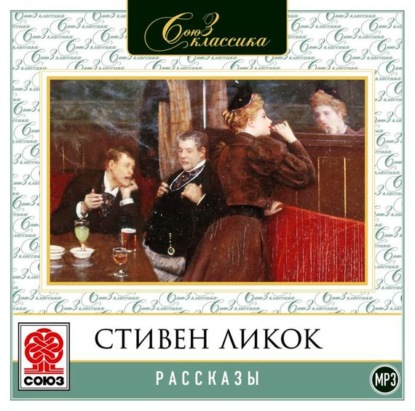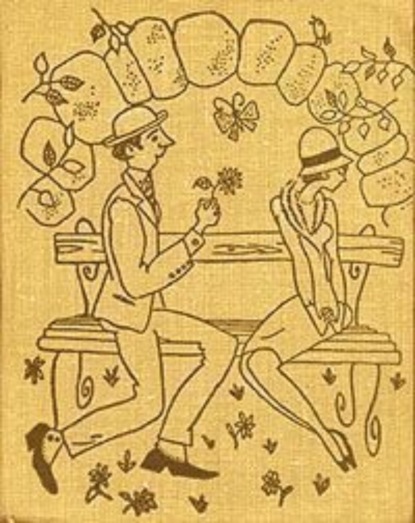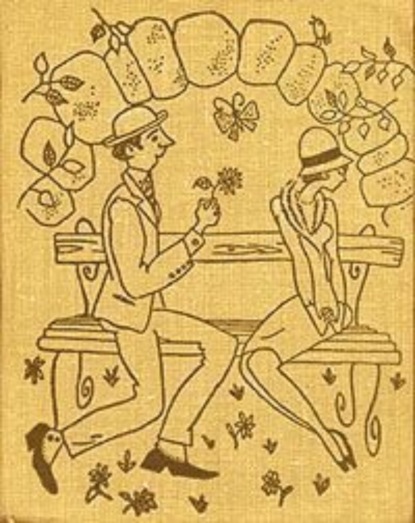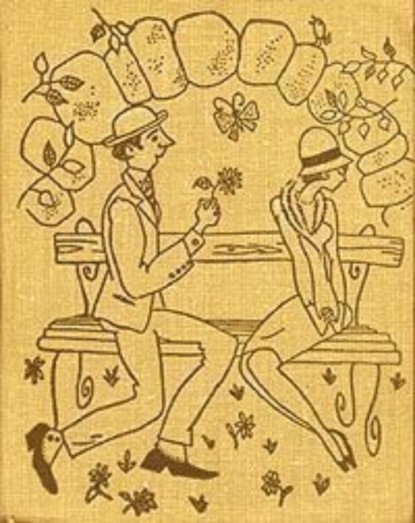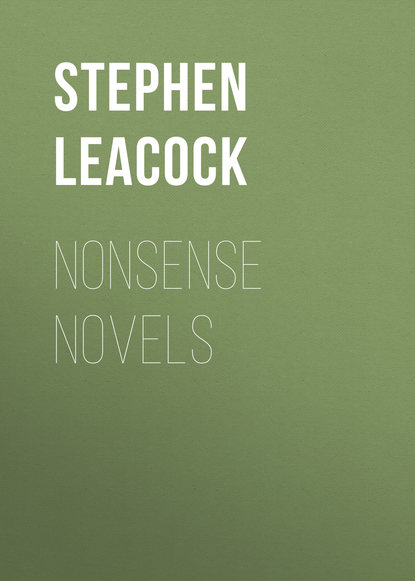 Полная версия
Полная версияПолная версия:
Стивен Батлер Ликок Nonsense Novels
- + Увеличить шрифт
- - Уменьшить шрифт

Stephen Leacock
Nonsense Novels
PREFACE
THE author of this book offers it to the public without apology. The reviewers of his previous work of this character have presumed, on inductive grounds, that he must be a young man from the most westerly part of the Western States, to whom many things might be pardoned as due to the exuberant animal spirits of youth. They were good enough to express the thought that when the author grew up and became educated there might be hope for his intellect. This expectation is of no avail. All that education could do in this case has been tried and has failed. As a Professor of Political Economy in a great university, the author admits that he ought to know better. But he will feel amply repaid for his humiliation if there are any to whom this little book may bring some passing amusement in hours of idleness, or some brief respite when the sadness of the heart or the sufferings of the body forbid the perusal of worthier things.
STEPHEN LEACOCK
McGill University
Montreal
I. – Maddened by Mystery: or, The Defective Detective
THE great detective sat in his office. He wore a long green gown and half a dozen secret badges pinned to the outside of it.
Three or four pairs of false whiskers hung on a whisker-stand beside him.
Goggles, blue spectacles and motor glasses lay within easy reach.
He could completely disguise himself at a second's notice.
Half a bucket of cocaine and a dipper stood on a chair at his elbow.
His face was absolutely impenetrable.
A pile of cryptograms lay on the desk. The Great Detective hastily tore them open one after the other, solved them, and threw them down the cryptogram-shute at his side.
There was a rap at the door.
The Great Detective hurriedly wrapped himself in a pink domino, adjusted a pair of false black whiskers and cried,
"Come in."
His secretary entered. "Ha," said the detective, "it is you!"
He laid aside his disguise.
"Sir," said the young man in intense excitement, "a mystery has been committed!"
"Ha!" said the Great Detective, his eye kindling, "is it such as to completely baffle the police of the entire continent?"
"They are so completely baffled with it," said the secretary, "that they are lying collapsed in heaps; many of them have committed suicide."
"So," said the detective, "and is the mystery one that is absolutely unparalleled in the whole recorded annals of the London police?"
"It is."
"And I suppose," said the detective, "that it involves names which you would scarcely dare to breathe, at least without first using some kind of atomiser or throat-gargle."
"Exactly."
"And it is connected, I presume, with the highest diplomatic consequences, so that if we fail to solve it England will be at war with the whole world in sixteen minutes?"
His secretary, still quivering with excitement, again answered yes.
"And finally," said the Great Detective, "I presume that it was committed in broad daylight, in some such place as the entrance of the Bank of England, or in the cloak-room of the House of Commons, and under the very eyes of the police?"
"Those," said the secretary, "are the very conditions of the mystery."
"Good," said the Great Detective, "now wrap yourself in this disguise, put on these brown whiskers and tell me what it is."
The secretary wrapped himself in a blue domino with lace insertions, then, bending over, he whispered in the ear of the Great Detective:
"The Prince of Wurttemberg has been kidnapped."
The Great Detective bounded from his chair as if he had been kicked from below.
A prince stolen! Evidently a Bourbon! The scion of one of the oldest families in Europe kidnapped. Here was a mystery indeed worthy of his analytical brain.
His mind began to move like lightning.
"Stop!" he said, "how do you know this?"
The secretary handed him a telegram. It was from the Prefect of Police of Paris. It read: "The Prince of Wurttemberg stolen. Probably forwarded to London. Must have him here for the opening day of Exhibition. 1,000 pounds reward."
So! The Prince had been kidnapped out of Paris at the very time when his appearance at the International Exposition would have been a political event of the first magnitude.
With the Great Detective to think was to act, and to act was to think.
Frequently he could do both together.
"Wire to Paris for a description of the Prince."
The secretary bowed and left.
At the same moment there was slight scratching at the door.
A visitor entered. He crawled stealthily on his hands and knees. A hearthrug thrown over his head and shoulders disguised his identity.
He crawled to the middle of the room.
Then he rose.
Great Heaven!
It was the Prime Minister of England.
"You!" said the detective.
"Me," said the Prime Minister.
"You have come in regard the kidnapping of the Prince of Wurttemberg?"
The Prime Minister started.
"How do you know?" he said.
The Great Detective smiled his inscrutable smile.
"Yes," said the Prime Minister. "I will use no concealment. I am interested, deeply interested. Find the Prince of Wurttemberg, get him safe back to Paris and I will add 500 pounds to the reward already offered. But listen," he said impressively as he left the room, "see to it that no attempt is made to alter the marking of the prince, or to clip his tail."
So! To clip the Prince's tail! The brain of the Great Detective reeled. So! a gang of miscreants had conspired to—but no! the thing was not possible.
There was another rap at the door.
A second visitor was seen. He wormed his way in, lying almost prone upon his stomach, and wriggling across the floor. He was enveloped in a long purple cloak. He stood up and peeped over the top of it.
Great Heaven!
It was the Archbishop of Canterbury!
"Your Grace!" exclaimed the detective in amazement—"pray do not stand, I beg you. Sit down, lie down, anything rather than stand."
The Archbishop took off his mitre and laid it wearily on the whisker-stand.
"You are here in regard to the Prince of Wurttemberg."
The Archbishop started and crossed himself. Was the man a magician?
"Yes," he said, "much depends on getting him back. But I have only come to say this: my sister is desirous of seeing you. She is coming here. She has been extremely indiscreet and her fortune hangs upon the Prince. Get him back to Paris or I fear she will be ruined."
The Archbishop regained his mitre, uncrossed himself, wrapped his cloak about him, and crawled stealthily out on his hands and knees, purring like a cat.
The face of the Great Detective showed the most profound sympathy. It ran up and down in furrows. "So," he muttered, "the sister of the Archbishop, the Countess of Dashleigh!" Accustomed as he was to the life of the aristocracy, even the Great Detective felt that there was here intrigue of more than customary complexity.
There was a loud rapping at the door.
There entered the Countess of Dashleigh. She was all in furs.
She was the most beautiful woman in England. She strode imperiously into the room. She seized a chair imperiously and seated herself on it, imperial side up.
She took off her tiara of diamonds and put it on the tiara-holder beside her and uncoiled her boa of pearls and put it on the pearl-stand.
"You have come," said the Great Detective, "about the Prince of
Wurttemberg."
"Wretched little pup!" said the Countess of Dashleigh in disgust.
So! A further complication! Far from being in love with the Prince, the Countess denounced the young Bourbon as a pup!
"You are interested in him, I believe."
"Interested!" said the Countess. "I should rather say so. Why,
I bred him!"
"You which?" gasped the Great Detective, his usually impassive features suffused with a carmine blush.
"I bred him," said the Countess, "and I've got 10,000 pounds upon his chances, so no wonder I want him back in Paris. Only listen," she said, "if they've got hold of the Prince and cut his tail or spoiled the markings of his stomach it would be far better to have him quietly put out of the way here."
The Great Detective reeled and leaned up against the side of the room. So! The cold-blooded admission of the beautiful woman for the moment took away his breath! Herself the mother of the young Bourbon, misallied with one of the greatest families of Europe, staking her fortune on a Royalist plot, and yet with so instinctive a knowledge of European politics as to know that any removal of the hereditary birth-marks of the Prince would forfeit for him the sympathy of the French populace.
The Countess resumed her tiara.
She left.
The secretary re-entered.
"I have three telegrams from Paris," he said, "they are completely baffling."
He handed over the first telegram.
It read:
"The Prince of Wurttemberg has a long, wet snout, broad ears, very long body, and short hind legs."
The Great Detective looked puzzled.
He read the second telegram.
"The Prince of Wurttemberg is easily recognised by his deep bark."
And then the third.
"The Prince of Wurttemberg can be recognised by a patch of white hair across the centre of his back."
The two men looked at one another. The mystery was maddening, impenetrable.
The Great Detective spoke.
"Give me my domino," he said. "These clues must be followed up," then pausing, while his quick brain analysed and summed up the evidence before him—"a young man," he muttered, "evidently young since described as a 'pup,' with a long, wet snout (ha! addicted obviously to drinking), a streak of white hair across his back (a first sign of the results of his abandoned life)—yes, yes," he continued, "with this clue I shall find him easily."
The Great Detective rose.
He wrapped himself in a long black cloak with white whiskers and blue spectacles attached.
Completely disguised, he issued forth.
He began the search.
For four days he visited every corner of London.
He entered every saloon in the city. In each of them he drank a glass of rum. In some of them he assumed the disguise of a sailor. In others he entered as a solider. Into others he penetrated as a clergyman. His disguise was perfect. Nobody paid any attention to him as long as he had the price of a drink.
The search proved fruitless.
Two young men were arrested under suspicion of being the Prince, only to be released.
The identification was incomplete in each case.
One had a long wet snout but no hair on his back.
The other had hair on his back but couldn't bark.
Neither of them was the young Bourbon.
The Great Detective continued his search.
He stopped at nothing.
Secretly, after nightfall, he visited the home of the Prime Minister. He examined it from top to bottom. He measured all the doors and windows. He took up the flooring. He inspected the plumbing. He examined the furniture. He found nothing.
With equal secrecy he penetrated into the palace of the Archbishop. He examined it from top to bottom. Disguised as a choir-boy he took part in the offices of the church. He found nothing.
Still undismayed, the Great Detective made his way into the home of the Countess of Dashleigh. Disguised as a housemaid, he entered the service of the Countess.
Then at last a clue came which gave him a solution of the mystery.
On the wall of the Countess's boudoir was a large framed engraving.
It was a portrait.
Under it was a printed legend:
THE PRINCE OF WURTTEMBERG
The portrait was that of a Dachshund.
The long body, the broad ears, the unclipped tail, the short hind legs—all was there.
In a fraction of a second the lightning mind of the Great Detective had penetrated the whole mystery.
THE PRINCE WAS A DOG!!!!
Hastily throwing a domino over his housemaid's dress, he rushed to the street. He summoned a passing hansom, and in a few moments was at his house.
"I have it," he gasped to his secretary. "The mystery is solved.
I have pieced it together. By sheer analysis I have reasoned it out.
Listen—hind legs, hair on back, wet snout, pup—eh, what? does that suggest nothing to you?"
"Nothing," said the secretary; "it seems perfectly hopeless."
The Great Detective, now recovered from his excitement, smiled faintly.
"It means simply this, my dear fellow. The Prince of Wurttemberg is a dog, a prize Dachshund. The Countess of Dashleigh bred him, and he is worth some 25,000 pounds in addition to the prize of 10,000 pounds offered at the Paris dog show. Can you wonder that–"
At that moment the Great Detective was interrupted by the scream of a woman.
"Great Heaven!"
The Countess of Dashleigh dashed into the room.
Her face was wild.
Her tiara was in disorder.
Her pearls were dripping all over the place.
She wrung her hands and moaned.
"They have cut his tail," she gasped, "and taken all the hair off his back. What can I do? I am undone!!"
"Madame," said the Great Detective, calm as bronze, "do yourself up.
I can save you yet."
"You!"
"Me!"
"How?"
"Listen. This is how. The Prince was to have been shown at Paris."
The Countess nodded.
"Your fortune was staked on him?"
The Countess nodded again.
"The dog was stolen, carried to London, his tail cut and his marks disfigured."
Amazed at the quiet penetration of the Great Detective, the Countess kept on nodding and nodding.
"And you are ruined?"
"I am," she gasped, and sank to the floor in a heap of pearls.
"Madame," said the Great Detective, "all is not lost."
He straightened himself up to his full height. A look of inflinchable unflexibility flickered over his features.
The honour of England, the fortune of the most beautiful woman in
England was at stake.
"I will do it," he murmured.
"Rise dear lady," he continued. "Fear nothing. I WILL IMPERSONATE
THE DOG!!!"
That night the Great Detective might have been seen on the deck of the Calais packet boat with his secretary. He was on his hands and knees in a long black cloak, and his secretary had him on a short chain.
He barked at the waves exultingly and licked the secretary's hand.
"What a beautiful dog," said the passengers.
The disguise was absolutely complete.
The Great Detective had been coated over with mucilage to which dog hairs had been applied. The markings on his back were perfect. His tail, adjusted with an automatic coupler, moved up and down responsive to every thought. His deep eyes were full of intelligence.
Next day he was exhibited in the Dachshund class at the International show.
He won all hearts.
"Quel beau chien!" cried the French people.
"Ach! was ein Dog!" cried the Spanish.
The Great Detective took the first prize!
The fortune of the Countess was saved.
Unfortunately as the Great Detective had neglected to pay the dog tax, he was caught and destroyed by the dog-catchers. But that is, of course, quite outside of the present narrative, and is only mentioned as an odd fact in conclusion.
II. – "Q." A Psychic Pstory of the Psupernatural
I CANNOT expect that any of my readers will believe the story which I am about to narrate. Looking back upon it, I scarcely believe it myself. Yet my narrative is so extraordinary and throws such light upon the nature of our communications with beings of another world, that I feel I am not entitled to withhold it from the public.
I had gone over to visit Annerly at his rooms. It was Saturday, October 31. I remember the date so precisely because it was my pay day, and I had received six sovereigns and ten shillings. I remembered the sum so exactly because I had put the money into my pocket, and I remember into which pocket I had put it because I had no money in any other pocket. My mind is perfectly clear on all these points.
Annerly and I sat smoking for some time.
Then quite suddenly—
"Do you believe in the supernatural?" he asked.
I started as if I had been struck.
At the moment when Annerly spoke of the supernatural I had been thinking of something entirely different. The fact that he should speak of it at the very instant when I was thinking of something else, struck me as at least a very singular coincidence.
For a moment I could only stare.
"What I mean is," said Annerly, "do you believe in phantasms of the dead?"
"Phantasms?" I repeated.
"Yes, phantasms, or if you prefer the word, phanograms, or say if you will phanogrammatical manifestations, or more simply psychophantasmal phenomena?"
I looked at Annerly with a keener sense of interest than I had ever felt in him before. I felt that he was about to deal with events and experiences of which in the two or three months that I had known him he had never seen fit to speak.
I wondered now that it had never occurred to me that a man whose hair at fifty-five was already streaked with grey, must have passed through some terrible ordeal.
Presently Annerly spoke again.
"Last night I saw Q," he said.
"Good heavens!" I ejaculated. I did not in the least know who Q was, but it struck me with a thrill of indescribable terror that Annerly had seen Q. In my own quiet and measured existence such a thing had never happened.
"Yes," said Annerly, "I saw Q as plainly as if he were standing here. But perhaps I had better tell you something of my past relationship with Q, and you will understand exactly what the present situation is."
Annerly seated himself in a chair on the other side of the fire from me, lighted a pipe and continued.
"When first I knew Q he lived not very far from a small town in the south of England, which I will call X, and was betrothed to a beautiful and accomplished girl whom I will name M."
Annerly had hardly begun to speak before I found myself listening with riveted attention. I realised that it was no ordinary experience that he was about to narrate. I more than suspected that Q and M were not the real names of his unfortunate acquaintances, but were in reality two letters of the alphabet selected almost at random to disguise the names of his friends. I was still pondering over the ingenuity of the thing when Annerly went on:
"When Q and I first became friends, he had a favourite dog, which, if necessary, I might name Z, and which followed him in and out of X on his daily walk."
"In and out of X," I repeated in astonishment.
"Yes," said Annerly, "in and out."
My senses were now fully alert. That Z should have followed Q out of X, I could readily understand, but that he should first have followed him in seemed to pass the bounds of comprehension.
"Well," said Annerly, "Q and Miss M were to be married. Everything was arranged. The wedding was to take place on the last day of the year. Exactly six months and four days before the appointed day (I remember the date because the coincidence struck me as peculiar at the time) Q came to me late in the evening in great distress. He had just had, he said, a premonition of his own death. That evening, while sitting with Miss M on the verandah of her house, he had distinctly seen a projection of the dog R pass along the road."
"Stop a moment," I said. "Did you not say that the dog's name was Z?"
Annerly frowned slightly.
"Quite so," he replied. "Z, or more correctly Z R, since Q was in the habit, perhaps from motives of affection, of calling him R as well as Z. Well, then, the projection, or phanogram, of the dog passed in front of them so plainly that Miss M swore that she could have believed that it was the dog himself. Opposite the house the phantasm stopped for a moment and wagged its tail. Then it passed on, and quite suddenly disappeared around the corner of a stone wall, as if hidden by the bricks. What made the thing still more mysterious was that Miss M's mother, who is partially blind, had only partially seen the dog."
Annerly paused a moment. Then he went on:
"This singular occurrence was interpreted by Q, no doubt correctly, to indicate his own approaching death. I did what I could to remove this feeling, but it was impossible to do so, and he presently wrung my hand and left me, firmly convinced that he would not live till morning."
"Good heavens!" I exclaimed, "and he died that night?"
"No, he did not," said Annerly quietly, "that is the inexplicable part of it."
"Tell me about it," I said.
"He rose that morning as usual, dressed himself with his customary care, omitting none of his clothes, and walked down to his office at the usual hour. He told me afterwards that he remembered the circumstances so clearly from the fact that he had gone to the office by the usual route instead of taking any other direction."
"Stop a moment," I said. "Did anything unusual happen to mark that particular day?"
"I anticipated that you would ask that question," said Annerly, "but as far as I can gather, absolutely nothing happened. Q returned from his work, and ate his dinner apparently much as usual, and presently went to bed complaining of a slight feeling of drowsiness, but nothing more. His stepmother, with whom he lived, said afterwards that she could hear the sound of his breathing quite distinctly during the night."
"And did he die that night?" I asked, breathless with excitement.
"No," said Annerly, "he did not. He rose next morning feeling about as before except that the sense of drowsiness had apparently passed, and that the sound of his breathing was no longer audible."
Annerly again fell into silence. Anxious as I was to hear the rest of his astounding narrative, I did not like to press him with questions. The fact that our relations had hitherto been only of a formal character, and that this was the first occasion on which he had invited me to visit him at his rooms, prevented me from assuming too great an intimacy.
"Well," he continued, "Q went to his office each day after that with absolute regularity. As far as I can gather there was nothing either in his surroundings or his conduct to indicate that any peculiar fate was impending over him. He saw Miss M regularly, and the time fixed for their marriage drew nearer each day."
"Each day?" I repeated in astonishment.
"Yes," said Annerly, "every day. For some time before his marriage I saw but little of him. But two weeks before that event was due to happen, I passed Q one day in the street. He seemed for a moment about to stop, then he raised his hat, smiled and passed on."
"One moment," I said, "if you will allow me a question that seems of importance—did he pass on and then smile and raise his hat, or did he smile into his hat, raise it, and then pass on afterwards?"
"Your question is quite justified," said Annerly, "though I think I can answer with perfect accuracy that he first smiled, then stopped smiling and raised his hat, and then stopped raising his hat and passed on."
"However," he continued, "the essential fact is this: on the day appointed for the wedding, Q and Miss M were duly married."
"Impossible!" I gasped; "duly married, both of them?"
"Yes," said Annerly, "both at the same time. After the wedding Mr. and Mrs. Q–"
"Mr. and Mrs. Q," I repeated in perplexity.
"Yes," he answered, "Mr. and Mrs. Q– for after the wedding Miss M. took the name of Q– left England and went out to Australia, where they were to reside."
"Stop one moment," I said, "and let me be quite clear—in going out to settle in Australia it was their intention to reside there?"
"Yes," said Annerly, "that at any rate was generally understood. I myself saw them off on the steamer, and shook hands with Q, standing at the same time quite close to him."
"Well," I said, "and since the two Q's, as I suppose one might almost call them, went to Australia, have you heard anything from them?"
"That," replied Annerly, "is a matter that has shown the same singularity as the rest of my experience. It is now four years since Q and his wife went to Australia. At first I heard from him quite regularly, and received two letters each month. Presently I only received one letter every two months, and later two letters every six months, and then only one letter every twelve months. Then until last night I heard nothing whatever of Q for a year and a half."
